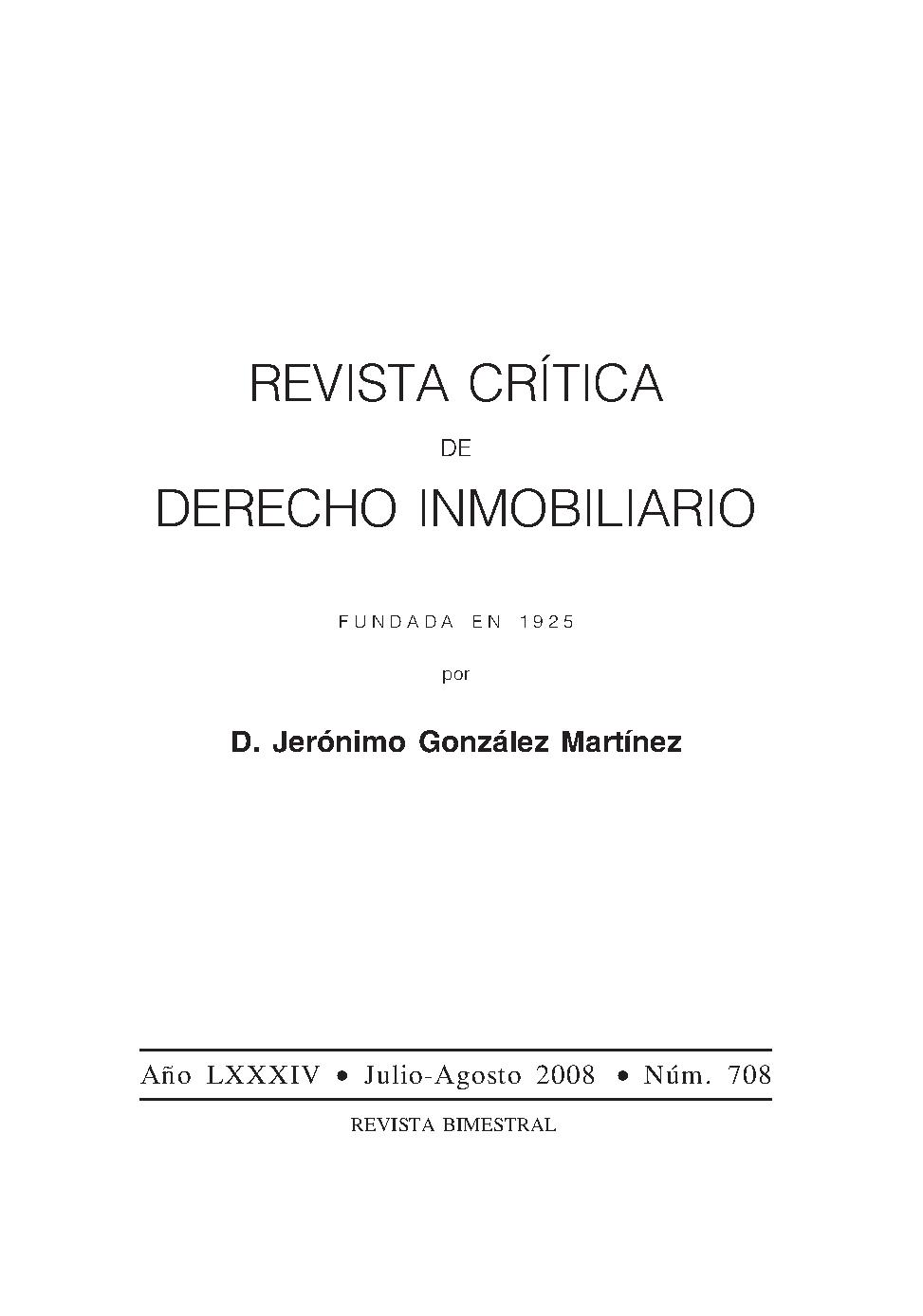ESTADO, PROPIEDAD, MERCADO.
Keywords:
THE PROPERTY REGISTRATION SYSTEM AND THE MARKETAbstract
The resources needed for survival are scarce and therefore have got to be used efficiently. Exclusive, freely transferable ownership is the best way to preserve scarce yet needed resources and use them efficiently. But ownership cannot exist without the state, which in turn comes into being as a means of using economies of scale to provide the necessary protection services that property ownership requires. The more efficiently and effectively the state performs its function, the farther the system of property rights will spread, so more goods will be preserved and used efficiently by a greater number of people. In order to fulfil its function, ownership has not only got to grant exclusive rights; it has also got to be easily and securely transferred, because otherwise the market cannot perform its own mission, which is to reassign resources constantly to wherever they can be used most efficiently. For that reason the state must organise a system of easy, secure ownership transferral. And that is not easy. On one side, the exploitation of goods by means of real rights make more-productive and therefore more-specialised use of goods possible, but, on the other side, it hampers the organisation of an easy, secure transferral system. Secure trade law solves this dilemma, and the property registration system is the instrument through which secure trade law is implemented for real estate. In the property registration system, registration is a kind of security. That is, it is the title to the right inter tertios, and it encloses within itself all the necessary information for acquiring a right as desired without the possibility of the acquisition's being frustrated by circumstances unknown to the acquirer. That registration is the title inter tertios means that the state commits itself to use its coercive power against anybody who disturbs the registered holder's exercise of the right. That requires a procedure to be followed before a right can be sanctioned by registration. In the procedure, all the interests in play are safeguarded, given the external effects of registration and the nature of property rights, among other reasons. The registry has therefore got to be independent to guarantee its neutrality. For that reason the registry has to be part of the state and not form part of the market. Nevertheless, some economic operators have attempted to appropriate registration functions. The article explains why that is unacceptable, what the consequences would be (a steep decline), what reasons lurk behind these attempts and what context they occur in. Part of the context is ignorance on the part of economic theory circles, until very recently, about the fundamental role of institutions in general and some institutions in particular, such as the property registration system.









